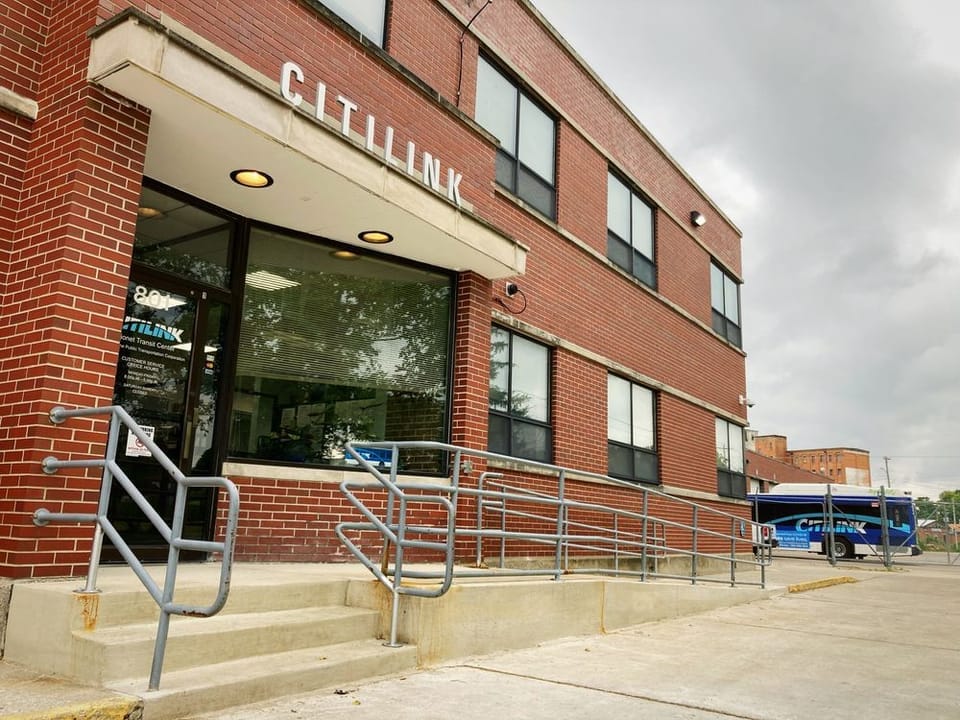The Deeper Dive: What's next for Citilink bus service in 2025?

You might remember: Fort Wayne's primary bus service, Citilink, was facing a $2.5 million operating deficit in its budget for 2025. As a result, CEO and General Manager John Metzinger came before Council on Oct. 8, seeking a special tax levy to avoid "deep" 14% service cuts.
Last week: Council approved a "stopgap measure" for Citilink, where the bus service can come to the City for funding after it has exhausted its cash balance of more than $978,000 and used its $1.6 million Rainy Day Fund down to $500,000. The new budget ordinance also requires Citilink to present a quarterly financial update to the City Council and to work with legislators for equitable distribution of state resources. Citilink's proposed special tax levy will not go into effect, but it could seek another special tax levy in the future.
Essentially: Last week's decision buys Citilink and Council another year to figure out a long-term solution to funding challenges for public transportation in Fort Wayne, while also maintaining most of Citilink's current services. Councilwoman Michelle Chambers, D-At Large, said: “While the amendment provides a short-term Band-Aid, it does not address the fundamental issue. Public transportation in Fort Wayne must be treated as a right, not a privilege.”
We sat down with Metzinger to learn more about the outcome and what's next for public transit in Fort Wayne.
How will Citilink's 2025 budget be affected as a result of the new agreement?
JM: The adopted budget for 2025 is about $700,000 lower than the 2024 adopted budget, so Citilink will operate austere, cutting expenses like association memberships, travel, training for workforce, and apprenticeship. We’re in contract negotiations with our union and working toward keeping our compensation costs low while valuing employees and remaining competitive. Our overhead costs are already low compared to our peers, but we will be tightening the belt even more and focusing on bringing value to riders and the community while seeking sustainable revenue sources.
What's next for Citilink now? How do you believe Citilink and the City can best work toward a long-term solution?
JM: Our next focus is on the Indiana legislature, and we’re glad to have the help of local elected leaders at the City. The Northeast Indiana Delegation needs to recognize public transportation as an essential investment in rural and urban communities. Our legislative priorities include adjusting state funding for transit known as the Public Mass Transit Fund (PMTF) for inflation. PMTF has been virtually flat for 12 years while ordinary operating expenses have grown 60%. We’re also asking INDOT to adjust the formula for disbursement of PMTF funds to prioritize funding by service area population, to bring at least another $2.5 million in annual funding to Fort Wayne. We’re also seeking a legislative change that would allow public transportation agencies to operate beyond county boundaries; our community has a need for regional transportation for workforce commutes, and Citilink’s vanpool program is a good solution.
Councilman Hartman mentioned the proposed $500,000 cap on City spending might give Citilink leverage when talking to legislators about state funding. Do you perceive any issues with removing the cap or convincing state legislators to fund Citilink/public transportation?
JM: We’re grateful to have flexibility to seek additional funds from the City, if necessary, especially for something unexpected, like a liability risk or expensive tort or workers compensation claim. Normally, our reserves would cover those costs, but part of the City’s budget resolution is requiring Citilink to spend its nest egg. The structural deficit Citilink is facing has arisen from 12 years of state disinvestment and constraints, like the circuit breaker (property tax caps), which has taken more than $10 million from Citilink since it was enacted; it’s important for statehouse leaders to see that local services, like public transportation, are struggling, not just in Fort Wayne, but across the state.
